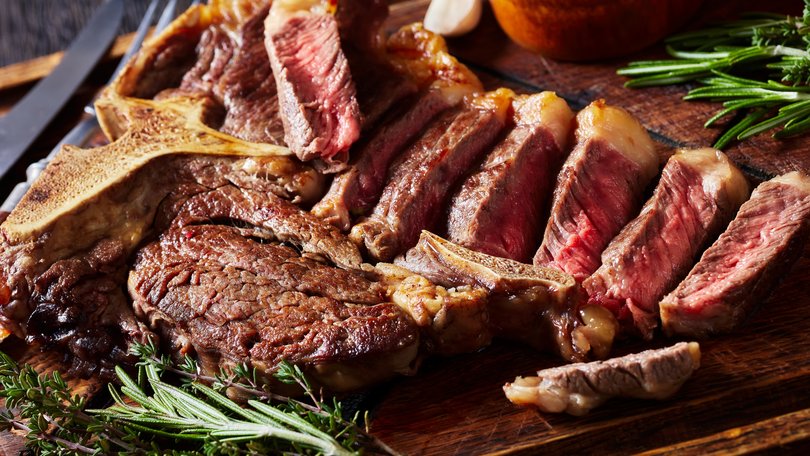What is the ‘carnivore diet’ and is it safe? Experts say it’s a terrible idea

Beef, butter, bacon and eggs — that’s what some influencers swear by for the “carnivore diet”. The diet beefs up on meat and minimises or cuts out fruit and vegetables entirely.
On TikTok, people can be seen eating bowls of steak and 12 scrambled eggs all in one day — and some even snack on a stick of butter, biting off a piece the way one would a carrot.
The diet, similar in style to the Atkins and keto diets, goes by many names: carnivore diet, lion diet, high-fat diet and animal-based diet. Devout followers of the lifestyle boast that their skin is clearer than it’s ever been, their gut is healthier and they’re in the best shape of their lives.
Sign up to The Nightly's newsletters.
Get the first look at the digital newspaper, curated daily stories and breaking headlines delivered to your inbox.
By continuing you agree to our Terms and Privacy Policy.“One of the best things that’s happened since I quit the vegan diet and went carnivore is that my body odour just disappeared,” TikToker @steakandbuttergal said in one of her videos. “I don’t use any soap, I don’t use any deodorant and I smell amazing.”
Here’s what experts have to say about the safety and sustainability of the carnivore diet.
Sounds like basically a terrible idea.
Weight loss is one of the huge benefits that people who follow the carnivore diet claim they’ve experienced since adding more animal-based products to their diet. This is likely because the eating pattern also cuts down on carbs, says Dr Walter Willett, a professor of epidemiology and nutrition at Harvard T.H. Chan School of Public Health in the US.
“It’s possible that some people who have been eating a lot of refined starch and sugar may get better in the short run,” Dr Willett says. “But this sounds like a diet that is going to be very unhealthy in the long run.”
With a diet of just beef, butter, bacon and eggs, people won’t get enough fibre, carotenoids and polyphenols, which are plentiful in fruits and vegetables.
Getting fibre in your diet is vital for gut health and can lower your chances of developing depression and breast cancer. Carotenoids have cancer-fighting properties, and polyphenols have properties that can protect against the development of health conditions like diabetes, heart disease and cancer.
The foods that are prominent in carnivore diets also contain high amounts of saturated fat and cholesterol, Dr Willett adds.
In a 2012 study published in the Archives of Internal Medicine, Harvard researchers found that of more than 100,000 men and women, “people in the study who ate the most red meat tended to die younger, and to die more often from cardiovascular disease and cancer”.
Despite the multitude of studies that connect red meat consumption and heart disease, some people just don’t agree that consuming red meat often is bad for your heart.
“This is the the mainstream messaging that we hear about red meat. It’s essentially been blamed for all kinds of human health catastrophes, from cardiovascular disease to colon cancer,” says Dr Georgia Ede, a Harvard-trained, board-certified psychiatrist who specialises in nutritional psychiatry.
“They’re based almost entirely on a type of research method called nutrition epidemiology, which is just untested theories, essentially, guesswork, about how red meat might be affecting us, that have never been tested in clinical trials and been found to be supported.
“Then the rest of the very little additional evidence that does come from experimental studies, that comes from very strange animal studies.”
To better understand how food intake may lead to disease, researchers have study participants write down or complete surveys about what they’ve eaten, which are all self-reported.
Some believe that this is a flawed way of coming to conclusions about how foods impact health, but experts have yet to land on a better alternative.
But even if people are really weary about the way in which nutritional studies are conducted, what can’t be denied are the effects of meat production on the climate.
To this, Dr Ede says: “Industrialised food production, whether it’s plants or animals, is really very harmful for the planet.”
And while this is true, there is a clear difference between how much the production of plant foods is impacting the environment versus animal-based products. The emissions of global greenhouse gases, like methane, from the production of animal-based foods are double that of the production of plant-based foods.
“You can think (that) if you’re eating that kind of meal, you’re helping bring down another tree on the other side,” Dr Willett says. “Sounds like basically a terrible idea.”
